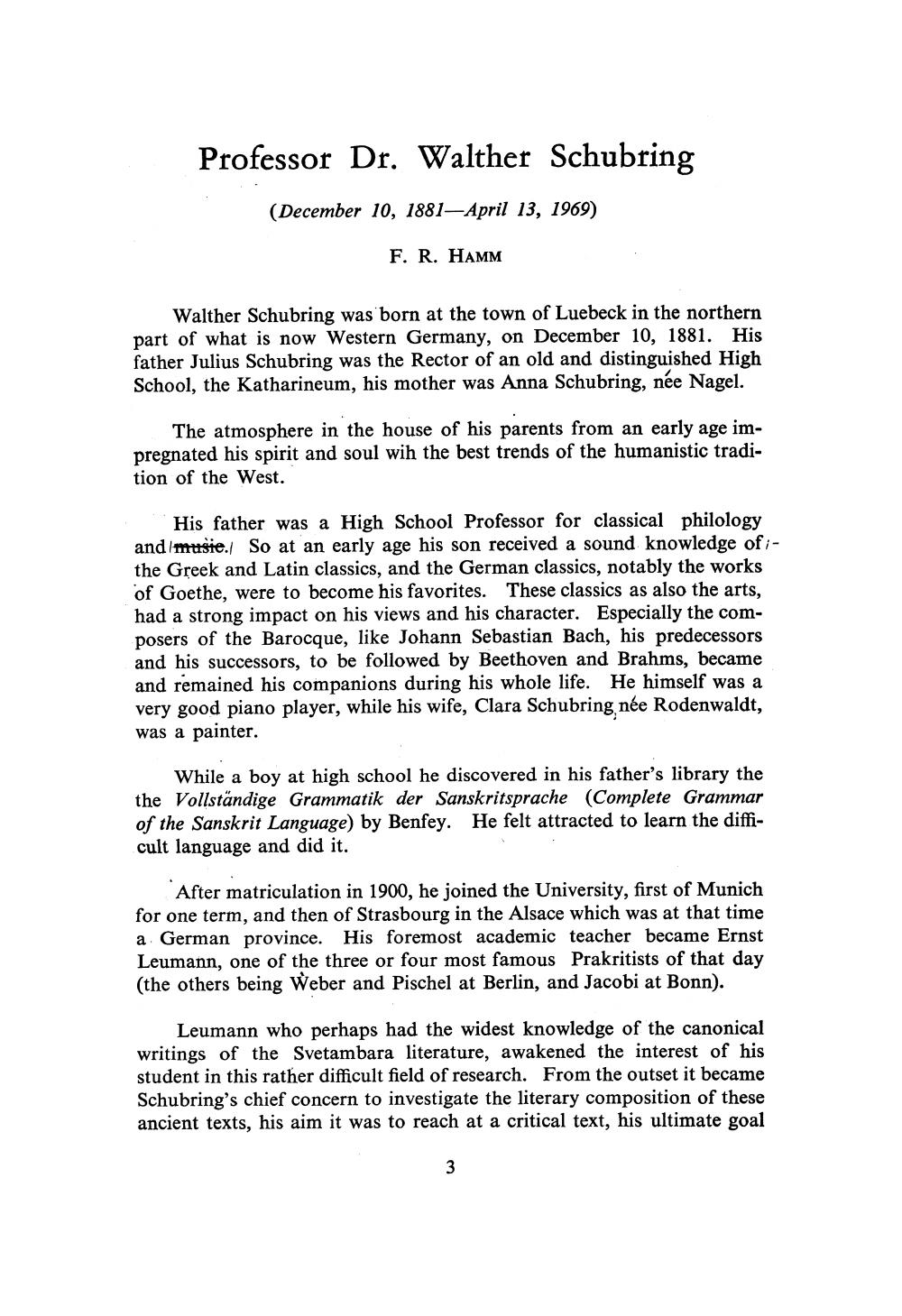________________
Professor Dr. Walther Schubring
(December 10, 1881—April 13, 1969)
F. R. HAMM
Walther Schubring was born at the town of Luebeck in the northern part of what is now Western Germany, on December 10, 1881. His father Julius Schubring was the Rector of an old and distinguished High School, the Katharineum, his mother was Anna Schubring, née Nagel.
The atmosphere in the house of his parents from an early age impregnated his spirit and soul wih the best trends of the humanistic tradition of the West.
His father was a High School Professor for classical philology and musie. So at an early age his son received a sound knowledge of ;the Greek and Latin classics, and the German classics, notably the works of Goethe, were to become his favorites. These classics as also the arts, had a strong impact on his views and his character. Especially the composers of the Barocque, like Johann Sebastian Bach, his predecessors and his successors, to be followed by Beethoven and Brahms, became and remained his companions during his whole life. He himself was a very good piano player, while his wife, Clara Schubring, née Rodenwaldt, was a painter.
While a boy at high school he discovered in his father's library the the Vollständige Grammatik der Sanskritsprache (Complete Grammar of the Sanskrit Language) by Benfey. He felt attracted to learn the difficult language and did it.
After matriculation in 1900, he joined the University, first of Munich for one term, and then of Strasbourg in the Alsace which was at that time a German province. His foremost academic teacher became Ernst Leumann, one of the three or four most famous Prakritists of that day (the others being Weber and Pischel at Berlin, and Jacobi at Bonn).
Leumann who perhaps had the widest knowledge of the canonical writings of the Svetambara literature, awakened the interest of his student in this rather difficult field of research. From the outset it became Schubring's chief concern to investigate the literary composition of these ancient texts, his aim it was to reach at a critical text, his ultimate goal




